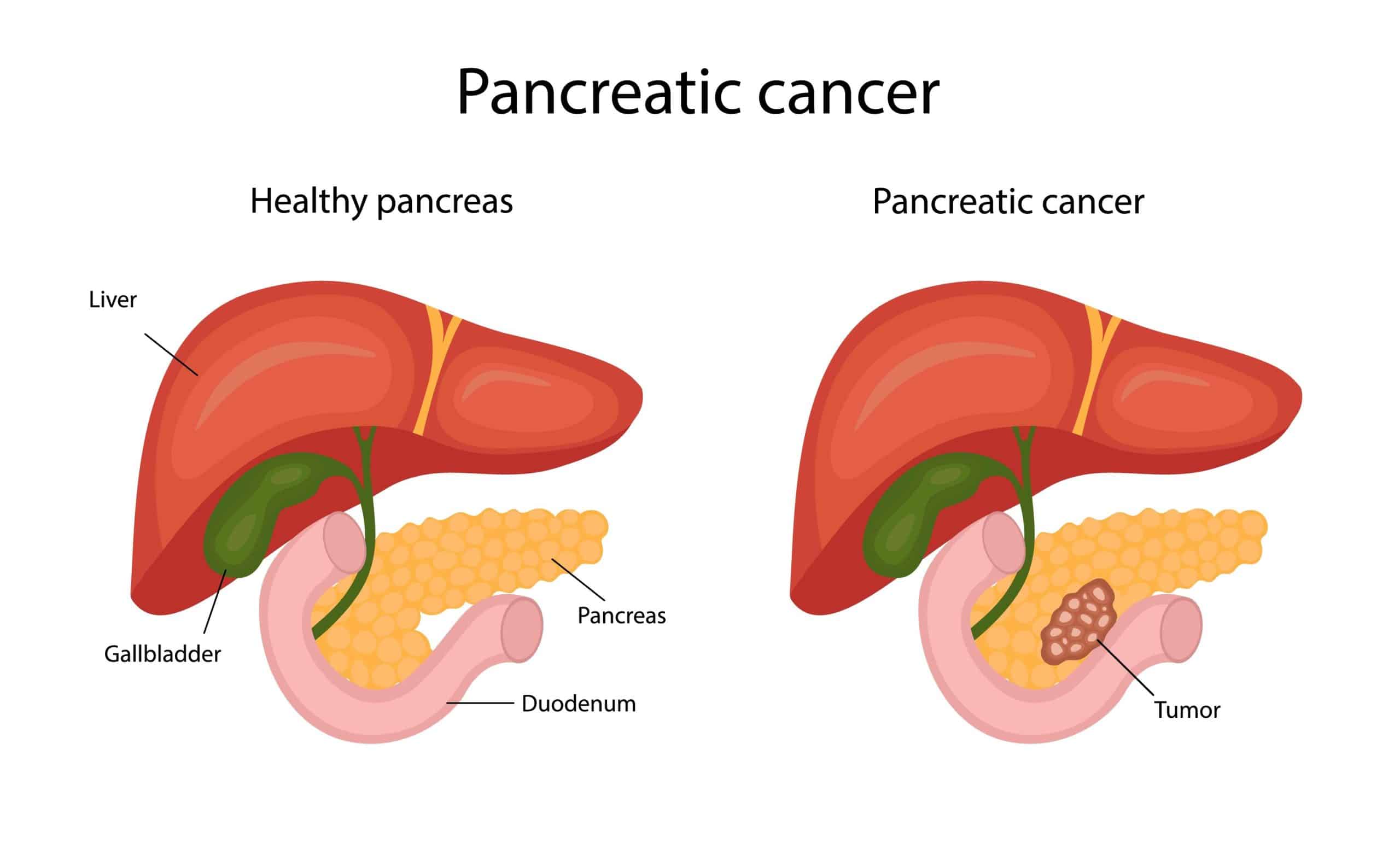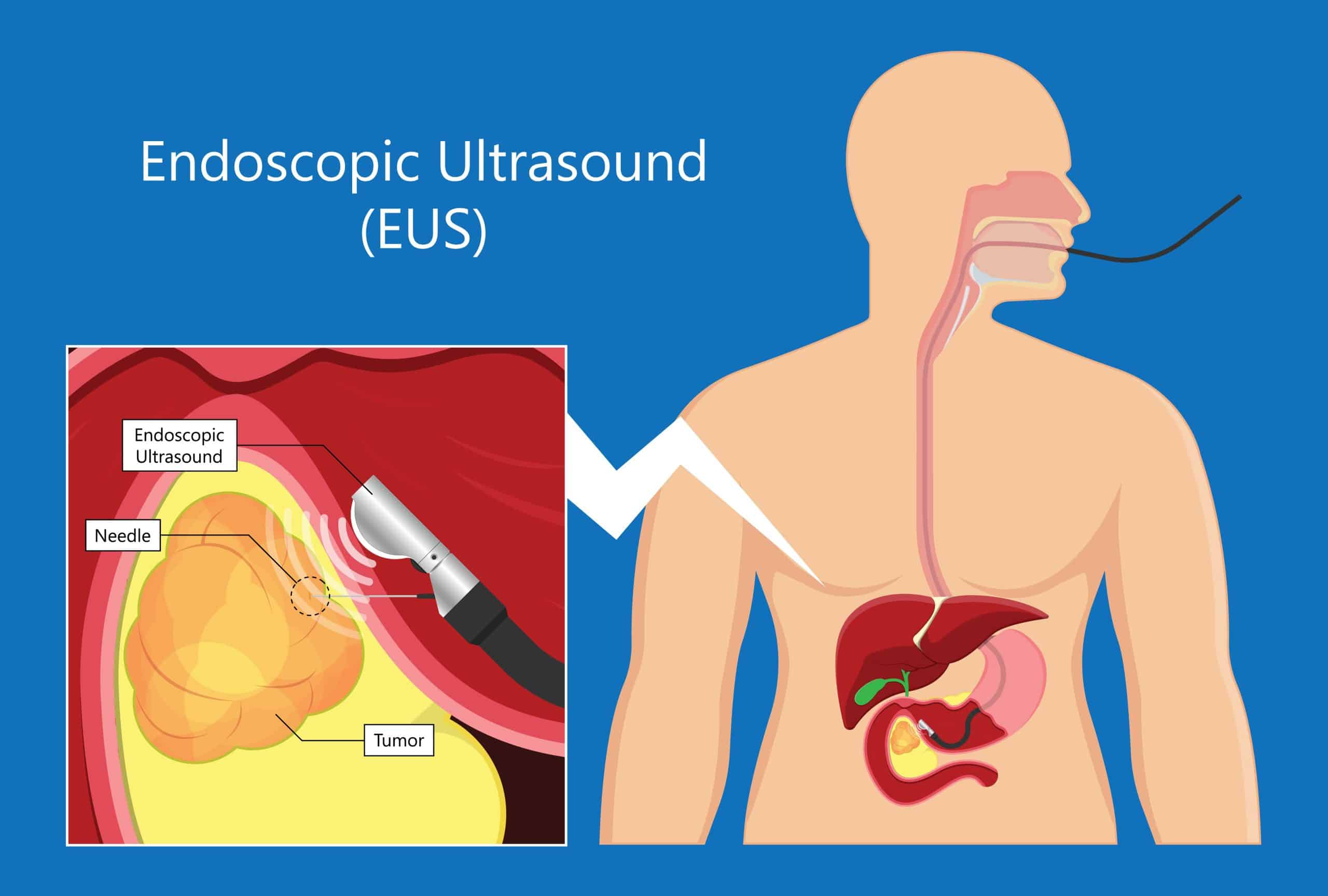What is Pancreatic Cancer?

Pancreatic cancer is a deadly disease concerning the pancreas, a critical gland in your abdomen which lies behind the lower part of your stomach. The pancreas plays two main functions:
- endocrine - produces hormones which regulate blood sugar levels and glandular secretion
- exocrine - secretes enzymes that break down carbohydrates, fats and proteins
When abnormal cells in your pancreas multiply uncontrollably and form a tumour, you have Pancreatic Cancer.
Is Pancreatic Cancer common in Singapore?
Pancreatic cancer is a serious health concern on our island, and unfortunately, its incidence has increased over the last 40 years. In Singapore, Pancreatic Cancer is the 4th most common cause of cancer death in females and the 5th most common cause of cancer death in males (according to SingHealth).
What are the common symptoms of Pancreatic Cancer in Singapore?

To maximise your chance of speedy recovery, it is best to be familiar with the red flags of Pancreatic Cancer, so you can seek timely medical help while the cancer is in its early stages. Doing so lets you embark on your treatment journey earlier, often significantly improving your prognosis.
Warning signs of Pancreatic Cancer
- Persistent abdominal pain that radiates to your back
- Yellowing of your skin and the whites of your eyes (jaundice)
- Light-coloured faeces
- Dark-coloured urine
- Poor appetite or unintentional weight loss
- Nausea, vomiting
- Itchy skin
- New diagnosis of diabetes or existing diabetes that's becoming harder to manage
- Blood clot in a large vein, which may present itself as pain, swelling, redness, and warmth in a leg (deep vein thrombosis)
- Having no energy (lethargy)
When to see a doctor
Early screening saves lives. Although it is not necessary for routine screenings for Pancreatic Cancers for healthy adults, if you are suffering from any of the possible symptoms of Pancreatic Cancer, consult a Gastroenterologist soon. Gastroenterologists specialise in treating digestive disorders, and can help you accurately diagnose whether your symptoms should be a cause of concern.
How is Pancreatic Cancer diagnosed?

Diagnosing Pancreatic Cancer involves a series of safe tests and procedures conducted by experienced healthcare professionals. These diagnostic methods will provide your doctor with the necessary information needed to evaluate the presence and extent of Pancreatic Cancer.
Imaging tests to obtain relevant pictures (non-invasive)
These imaging tests help your doctor to visualise and examine the pancreas and its surrounding structures, allowing him to look out for any abnormalities.
Examples: CT scans, MRI, and PET scans
Endoscopic procedures for a detailed view (minimally invasive)
Endoscopy is a non-surgical procedure where a flexible tube with a light and camera attached is inserted into your body, so your doctor can examine the pancreas as well as collect tissue samples for further analysis.
Blood tests to check for tumour markers (minimally invasive)
Blood tests can help detect tumour markers. These blood tests analyse specific substances released by cancer cells into the bloodstream.
Example: CA19-9
Is Pancreatic Cancer life-threatening? Can Pancreatic Cancer be treated successfully?
The curability of Pancreatic Cancer depends on a variety of factors, namely, the stage of cancer, overall physical health, the efficacy of the treatment(s) administered, etc.
If the cancer is detected early when surgical removal of the tumour is plausible, the 5-year relative survival rate is approximately half. Unfortunately, the prognosis of Pancreas Cancer is generally poor as many people do not spot the cancer until it has become advanced. They miss out on the golden chance to treat the cancer in its early stages, which lowers their chance of survival.
However, it is crucial to understand that statistics can vary depending on your unique health condition. We recommend consulting with your Gastroenterologist, who will conduct a personalised clinical evaluation and give you a more accurate prognosis.
On a positive note, advances in medical research continue to provide hope for improved outcomes and higher survival rates.
Summary
In conclusion, Pancreatic Cancer is one of the leading causes of cancer death in Singapore. Although the disease is often deadly, you can maximise your chance of recovery through early diagnosis. At Alpha Digestive & Liver Centre, our award-winning Gastroenterologist, who is an expert in advanced endoscopic procedures can address your Pancreas Cancer concerns. If you have one or more symptoms of Pancreatic Cancer, schedule a medical appointment today.
References
- Karpińska M. & Czauderna M. Pancreas-Its Functions, Disorders, and Physiological Impact on the Mammals' Organism. Front Physiol. 2022;13:807632. Accessed June 19, 2023. doi:10.3389/fphys.2022.807632
- SingHealth. Pancreatic Cancer. Accessed June 19, 2023. https://www.singhealth.com.sg/patient-care/conditions-treatments/pancreatic-cancer#:~:text=In%20Singapore%2C%20pancreatic%20cancer%20is,of%20cancer%20death%20in%20females.
- Northwestern Medicine. Pancreatic Cancer: Fighting a Silent Killer. Accessed June 19, 2023. https://www.nm.org/healthbeat/medical-advances/pancreatic-cancer-fighting-a-silent-killer.
- Mayo Clinic. Pancreatic Cancer: Diagnosis and Treatment. Accessed June 20, 2023. https://www.mayoclinic.org/diseases-conditions/pancreatic-cancer/diagnosis-treatment/drc-20355427.
- HealthHub. Pancreatic Cancer: Symptoms and Treatment. Accessed June 20, 2023. https://www.healthhub.sg/a-z/diseases-and-conditions/763/Pancreatic-cancer-symptoms-treatment.

